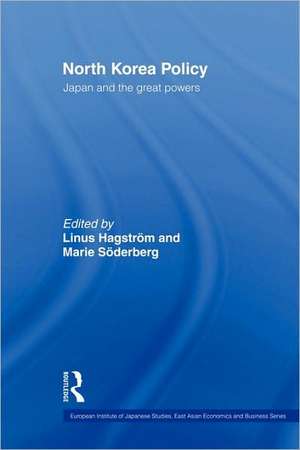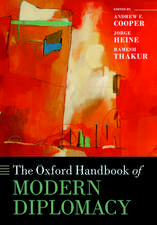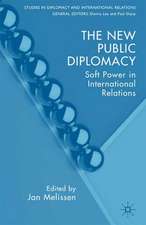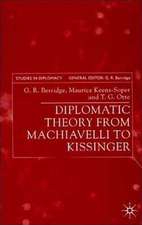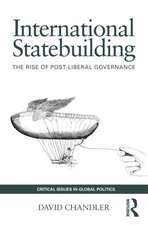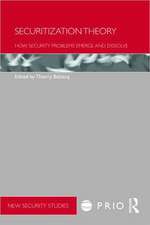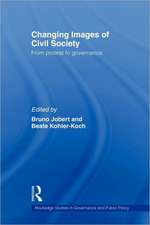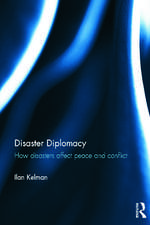North Korea Policy: Japan and the Great Powers: European Institute of Japanese Studies East Asian Economics and Business Series
Editat de Linus Hagström, Marie Söderbergen Limba Engleză Paperback – 15 apr 2009
This comprehensive book analyzes the formation of the North Korea policy in the context of great power relations in East Asia, specifically focusing on Japan's policy formation and 'the Japan factor' in the North Korea policies of other concerned great powers, namely the US, China, Russia, South Korea and the EU. By adopting an empirical focus on the international interaction over North Korea, this book brings together issues that are highly relevant to contemporary Japanese foreign policy; clarifies what is happening in the region right now and plots what policy options are available for the future. Policy-oriented and based on careful empirical analysis, North Korea Policy will appeal to both policy makers and scholars of Asian foreign policy.
| Toate formatele și edițiile | Preț | Express |
|---|---|---|
| Paperback (1) | 190.98 lei 6-8 săpt. | |
| Taylor & Francis – 15 apr 2009 | 190.98 lei 6-8 săpt. | |
| Hardback (1) | 394.60 lei 6-8 săpt. | |
| Taylor & Francis – 18 oct 2006 | 394.60 lei 6-8 săpt. |
Preț: 190.98 lei
Nou
Puncte Express: 286
Preț estimativ în valută:
36.54€ • 38.16$ • 30.18£
36.54€ • 38.16$ • 30.18£
Carte tipărită la comandă
Livrare economică 15-29 aprilie
Preluare comenzi: 021 569.72.76
Specificații
ISBN-13: 9780415546904
ISBN-10: 0415546907
Pagini: 192
Ilustrații: 2 b/w images, 3 tables and 2 line drawings
Dimensiuni: 156 x 234 x 10 mm
Greutate: 0.28 kg
Ediția:1
Editura: Taylor & Francis
Colecția Routledge
Seria European Institute of Japanese Studies East Asian Economics and Business Series
Locul publicării:Oxford, United Kingdom
ISBN-10: 0415546907
Pagini: 192
Ilustrații: 2 b/w images, 3 tables and 2 line drawings
Dimensiuni: 156 x 234 x 10 mm
Greutate: 0.28 kg
Ediția:1
Editura: Taylor & Francis
Colecția Routledge
Seria European Institute of Japanese Studies East Asian Economics and Business Series
Locul publicării:Oxford, United Kingdom
Public țintă
Postgraduate and UndergraduateCuprins
Introduction: Japan, the Great Powers, and the Coordination of North Korea Policy 1. Japan and the Recurrent Nuclear Crisis 2. The Rationales behind North Korean Foreign Policy 3. Seoul's Policy toward Pyongyang: Strategic Culture and the Negligibility of Japan 4. US North Korea Policy: The 'Japan Factor' 5. Chinese North Korea Policy: A Secondary Role for Japan 6. Russian North Korea Policy: Old Conflicts Obstacle for Russo-Japanese Cooperation 7. The EU's North Korea Policy: No Trace of Japanese Influence 8. Japan and Multilateralism in the North Korean Nuclear Crisis: Road Map or Dead End?
Notă biografică
Linus Hagström is Research Fellow at the Swedish Institute of International Affairs, Sweden.
Marie Söderberg is Associate Professor at the European Institute of Japanese Studies at Stockholm School of Economics, Sweden.
Marie Söderberg is Associate Professor at the European Institute of Japanese Studies at Stockholm School of Economics, Sweden.
Recenzii
'North Korea Policy provides a worthwhile contribution to the literature on both the issue of North Korea in East Asian international relations and on Japan's role in this issue. It brings together a wide range of perspectives and constructs an original approach to the topic.'- H.D.P. Envall, electronic journal of contemporary japanese studies , 2008
‘This book will be of especial interest to scholars and policy makers interested in Northeast Asian relations and foreign policy. Both will benefit form a better understanding of the relatively understudies issue of Japan’s influence on other powers’ foreign policy.’ Ramon Pacheco Pardo, East Asia, 2008
‘This book will be of especial interest to scholars and policy makers interested in Northeast Asian relations and foreign policy. Both will benefit form a better understanding of the relatively understudies issue of Japan’s influence on other powers’ foreign policy.’ Ramon Pacheco Pardo, East Asia, 2008
Descriere
Bringing together issues that are highly relevant to contemporary Japanese foreign policy, this comprehensive text analyzes the formation of the North Korea policy in the context of great power relations in East Asia.
